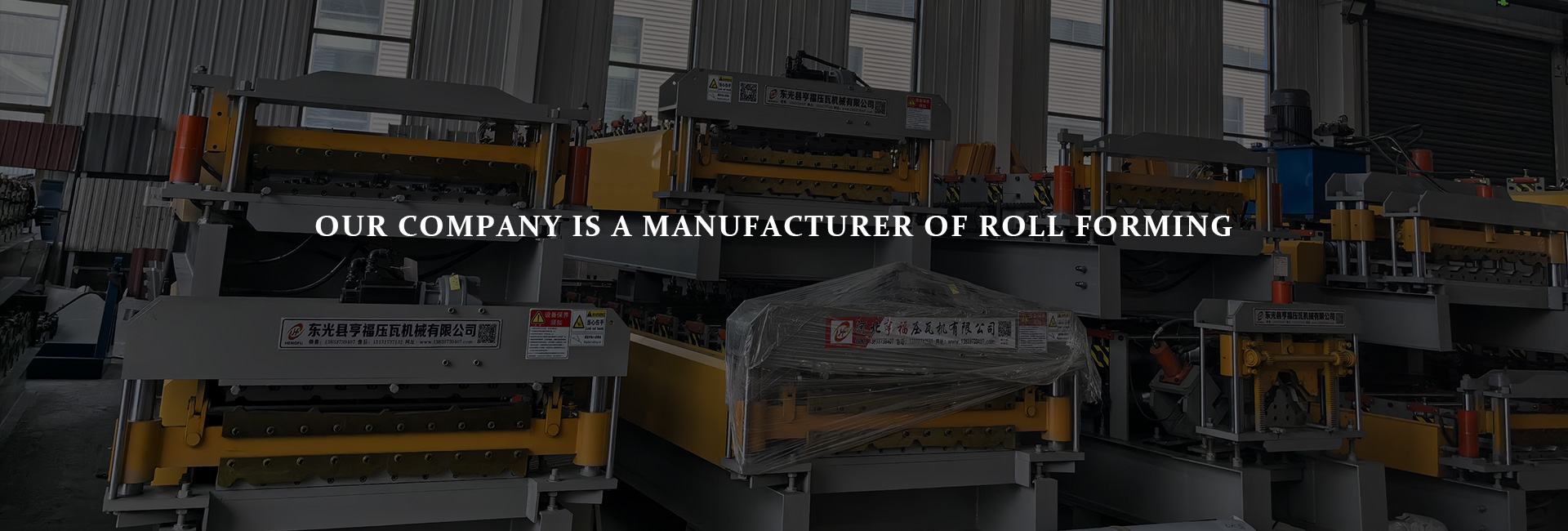As an essential piece of equipment, tile roll forming machines are widely used in manufacturing metal roofing tiles. However, over extended use, malfunctions may arise, potentially impacting production efficiency and product quality. This article explores common malfunctions in tile roll forming machines and provides solutions to help you maintain your equipment and ensure smooth production.
1. Causes of Common Malfunctions in Tile Roll Forming Machines
Before exploring common malfunctions and solutions, it’s essential to understand the main causes of these issues. Malfunctions are usually linked to the machine's design, improper operation, or insufficient maintenance. Common causes include:
Improper Operation: Operators do not follow the correct procedures for using the machine.
Lack of Regular Maintenance: The equipment is not checked or maintained after extended use.
Poor Quality of Raw Materials: Low-quality raw materials can cause excessive load on the machine.
Component Wear and Tear: Over time, parts of the machine inevitably wear out and age due to continuous operation.
2. Common Malfunctions in Tile Roll Forming Machines and Solutions
(1) Machine Fails to Start
If the tile roll forming machine fails to start, it could be due to electrical issues or a power problem.
Solutions:
Check Power Connection: Ensure the power line is properly connected, and the power switch is on.
Inspect Fuses and Circuitry: If there's a short circuit or blown fuse, replace the fuse or repair the circuit.
Examine the Motor: Ensure the motor is functional, and if necessary, contact a professional for inspection and repair.
(2) Slow Production Speed
The machine’s slow production speed may be caused by factors such as improper operation, equipment wear, or control system issues.
Solutions:
Check the Control System: Ensure the control system is functioning correctly; check for program errors or incorrect settings.
Adjust Operating Parameters: Set appropriate pressure and speed parameters based on production needs to ensure optimal performance.
Inspect Mechanical Components: Check chains, gears, and other mechanical parts, lubricate them regularly, or replace severely worn parts.
(3) Poor Tile Formation
If tiles produced by the machine are deformed, uneven, or have surface defects, it may be due to mold wear, unsuitable materials, or insufficient pressure.
Solutions:
Inspect the Mold: Check for wear or damage on the mold, and repair or replace it if needed.
Adjust Pressure: Adjust the machine’s pressure according to the type of metal sheet to ensure tile formation quality.
Use Suitable Materials: Ensure the raw materials meet the specifications to avoid poor formation due to material quality issues.
(4) Unusual Noise
Unusual noise during the machine’s operation may indicate loose components, insufficient lubrication, or mechanical wear.
Solutions:
Check Components: Inspect internal components, especially gears and bearings, to ensure they’re not loose or worn.
Apply Lubrication: Regularly lubricate the machine to keep parts properly lubricated and reduce friction and wear.
Replace Damaged Parts: Replace any damaged or severely worn components to prevent further issues.
(5) Electrical Control Faults
Electrical control faults usually result in an inability to start the machine or unstable operation. These issues may involve sensors, inverters, or control panels.
Solutions:
Inspect the Electrical System: Check for loose or damaged cables in the electrical system and ensure a stable power supply.
Test Sensors: Verify the functionality of all sensors, and replace any faulty ones if necessary.
Check the Inverter and Control Panel: Contact a professional if you find faults in the inverter or control panel for repair or replacement.
3. How to Prevent Tile Roll Forming Machine Malfunctions
The best way to prevent malfunctions in tile roll forming machines is through regular maintenance and inspection. Here are some preventive measures:
Regular Inspection and Maintenance: Regularly inspect the machine to detect potential issues early and extend its lifespan.
Keep the Machine Clean: Maintain cleanliness to prevent dust and debris from entering mechanical parts and causing wear.
Operator Training: Provide professional training to operators to ensure they understand correct operation techniques and prevent issues from improper usage.
Use High-Quality Raw Materials: Ensure the metal sheets meet requirements to prevent machine faults due to material issues.
4. Conclusion
Malfunctions in tile roll forming machines can affect production efficiency and product quality. Therefore, understanding common issues and solutions is crucial. Regular equipment maintenance, proper operation, and timely troubleshooting can effectively reduce downtime and increase productivity. If you encounter issues that you can’t resolve independently, consider contacting professional maintenance personnel to ensure the machine’s proper functioning.
The information provided here aims to help you better understand common malfunctions and solutions for tile roll forming machines. If you’re interested in learning more about maintenance tips or purchasing recommendations, feel free to reach out anytime.







